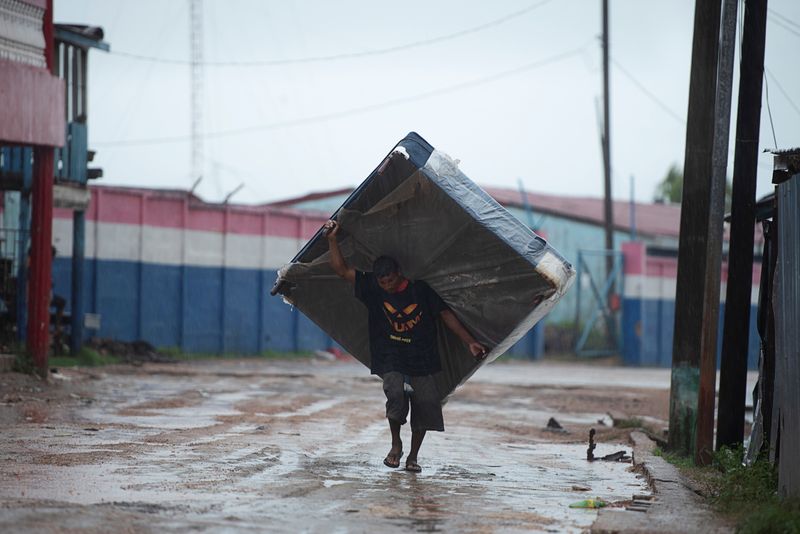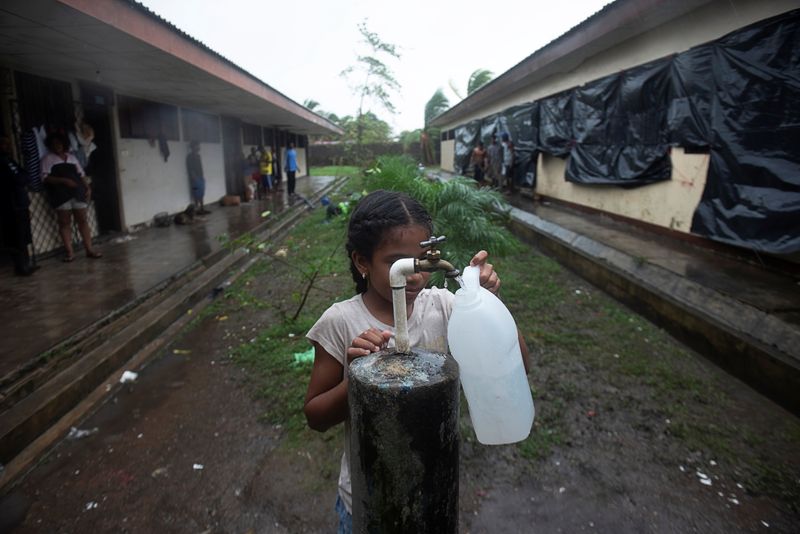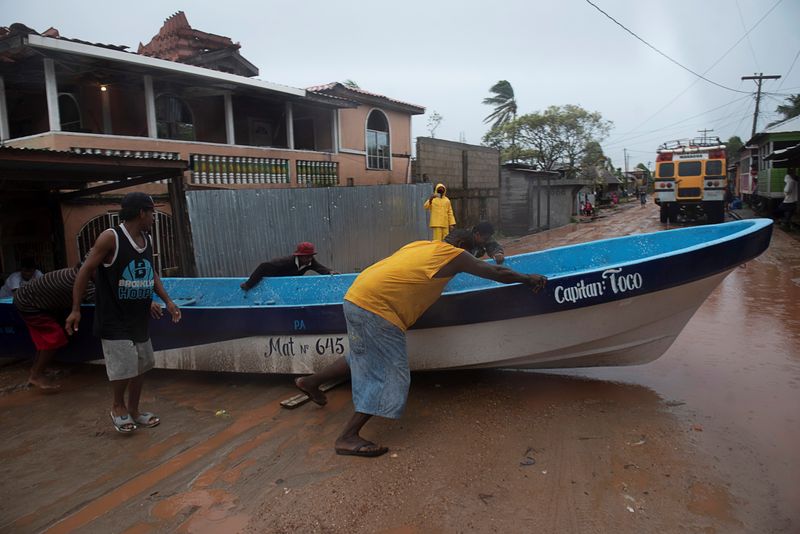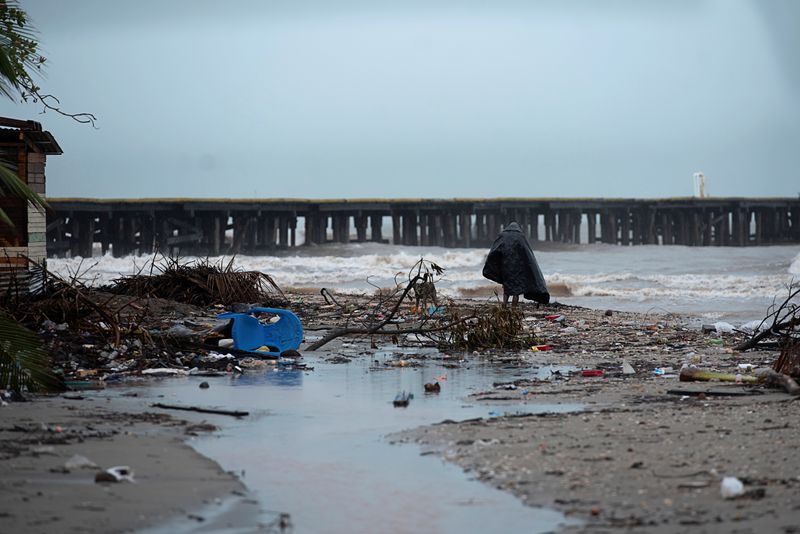TEGUCIGALPA (Reuters) – A slightly weakened Hurricane Iota began whipping a remote coastal area of Nicaragua with catastrophic winds and storm surges on Monday, as the region’s leaders blamed climate change for destructive weather pushing millions closer to hunger.
Iota was due to crash through northeastern Nicaragua’s Miskito region overnight, packing maximum sustained winds of 155 miles per hour (250 kph).
By 10 p.m. EST, the U.S. National Hurricane Center had downgraded its power to Category 4 from 5 on the Saffir-Simpson scale. It is expected to dissipate over Central America on Wednesday, but not without causing serious damage.
Reuters images showed rain spattering the partially flooded beachside city of Puerto Cabezas on Nicaragua’s coast, and wind rattling the roofs of its one-story buildings.
“We’re all scared for our lives,” said Magdalena Bell, who had taken refuge in a shelter in Puerto Cabezas.
Central America and southern Mexico are still reeling from Hurricane Eta, which devastated crops and washed away hillsides after landing near Puerto Cabezas two weeks ago, killing dozens. Many towns are still partially flooded, and the land is waterlogged from the earlier storm.
Along with the wind, Iota will raise sea levels as much as 20 feet (6 meters) above normal tides. It is expected to dump as much as 30 inches (76 cm) of rain over the next few days as it weakens inland.
Earlier in the day, governments from Panama to Guatemala rushed to move people away from hillsides, volcanoes and bodies of water. The World Food Programme said millions of people had already urgently needed food aid in the wake of Eta.
“What’s drawing closer is a bomb,” Honduran President Juan Orlando Hernandez told a news conference, speaking alongside Guatemalan President Alejandro Giammattei.
Central America was among the worst affected regions in the world by climate change, the presidents said. Tens of thousands of families had lost entire crops to Eta’s destruction, he said.
Iota will leave Honduras and its neighbors in “a very difficult situation,” Hernandez said.
This is the first time two major hurricanes have formed in the Atlantic basin in November since records began in 1851. Iota is also the first Category 5 storm of the hurricane season.
The Miskito region straddling Honduras and Nicaragua raced to get people to safety before a forecast direct hit from Iota. Its eye was about 30 miles (45 km) east-southeast of Puerto Cabezas after clipping the Colombian islands of San Andres and Providencia before dawn, cutting off electricity.
UNPRECEDENTED SEASON
Images from Nicaragua’s military showed soldiers helping people into boats in heaving seas and trucks to move to higher land and larger towns in the watery region of jungles, rivers and coastline.
“There are villages that can protect or save themselves, but others cannot cope with this catastrophe after Eta,” said Teonela Wood, mayor of Honduras’ Brus Laguna municipality, which she said was home to more than 17,000 people.
Many of the people of Miskito are descendants of indigenous groups along with Africans who escaped from slavery and those castaways believed to have survived a 17th-century slave shipwreck.
The unprecedented 2020 hurricane season comes as Central America is facing an economic crisis linked to the coronavirus pandemic, with experts warning the compounding hardship could worsen infections, spread hunger and fuel a new round of migration from the region.
Iota is the fiercest November storm in the region since a 1932 Cuba hurricane that packed 175-mph (281-kph) winds, according to private forecasting firm AccuWeather.
Climate change is increasing the intensity of both rain and droughts across Central America, the United Nations refugee agency said last week, saying such phenomena can exacerbate the poverty that drives people to flee their homes.
With a rise in average global temperatures, hurricanes are growing stronger and spinning more slowly, which can prolong their destructive treks across land.
(Reporting by Gustavo Palencia in Teguigalpa; Additional reporting by Daina Beth Solomon and Ismael Lopez in Mexico City, Sofia Menchu in Guatemala City, Nelson Renteria in San Salvador, Elida Moreno in Panama City and Oliver Griffin in Bogota; Writing by Frank Jack Daniel; Editing by Jonathan Oatis and Aurora Ellis)




























